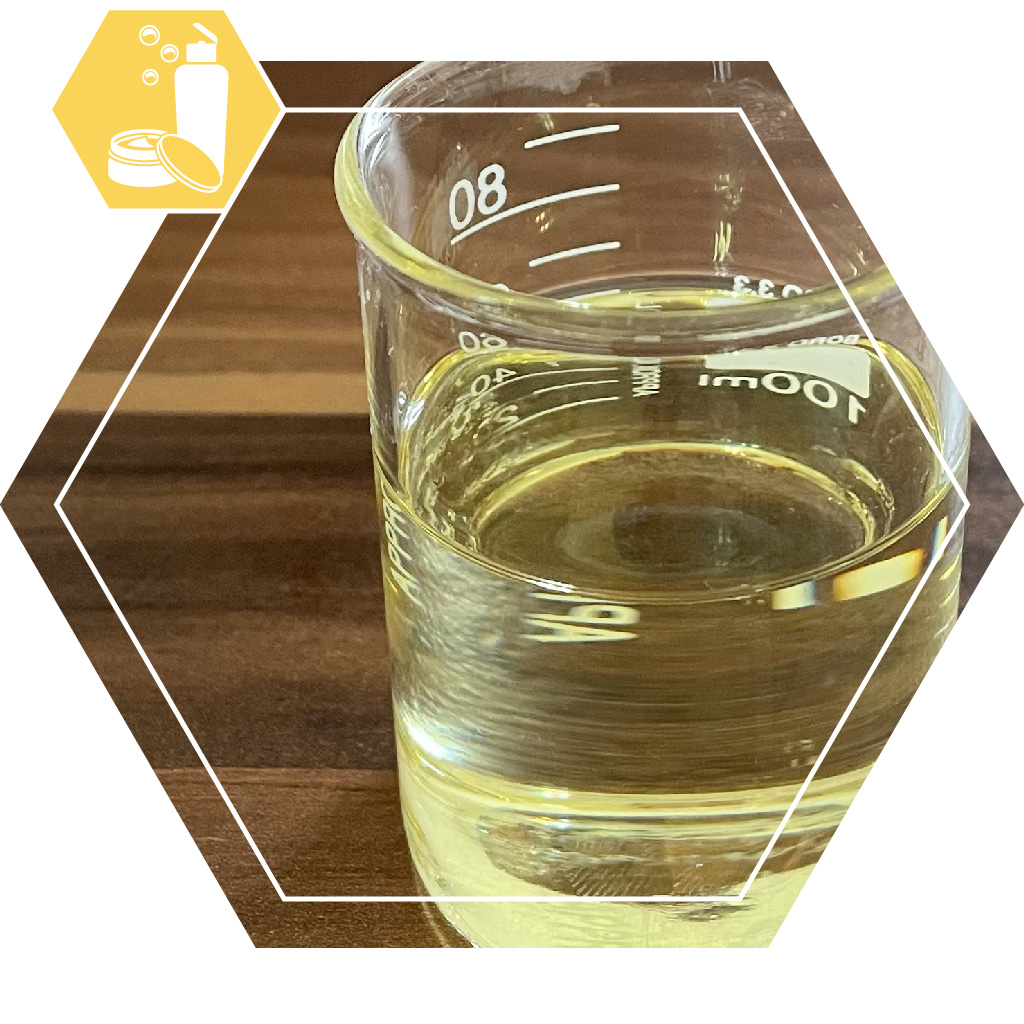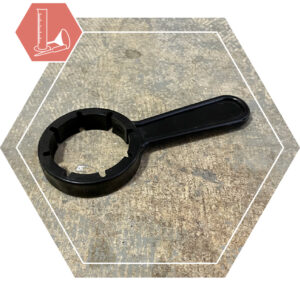Cosmetics raw material
Description
This text has been automatically translated and may contain errors.
Almond oil (sweet) is a fatty oil for use in cosmetics.
Use
Almond oil is used as a nourishing ingredient in, for example, creams, bath oil and oily skin serums. It can replenish the fat layer on the skin, supporting the skin's barrier function. In addition, the skin feels smoother. In a massage oil, it can be the bulking ingredient.
Almond oil (sweet) can often simply be mixed with the other ingredients in anhydrous products. Heating in a water bath may be necessary if there are also solids in the mixture. In creams and other emulsions, almond oil is used in the fat phase.
In principle, almond oil can be used up to 100% in cosmetics. Almond oil is suitable for all skin types, but especially for dry skin. The oil does not feel too greasy (heavy) compared to many other types of oil, but also not too light, for that reason a very popular oil.
De Hekserij does not sell products intended for use in foodstuffs or for other internal use.
Store in a cool, dry and dark place in a tightly closed container. Keep out of reach of children.
Properties
Almond oil (sweet) is a clear, colorless to tan liquid. Vegetable oil can (partly) become solid, especially in the cold season. This makes the oil appear cloudy, there are solid pieces in the form of lumps or long strings. It is often sufficient to allow the oil to come to room temperature, sometimes it is necessary to heat the oil in a bain marie for a while. In general, however, the oil is completely liquid. The oil has a slightly greasy smell.
We opted for a refined oil, because of this the smell is not too strong, the color is not too dark and the shelf life is fairly long. Refining in this case means, inter alia, partial decolorization with diatomaceous earth and partial deodorization by steam.
Due to the refining, part of the vitamins and other active ingredients in the oil are lost, but in unrefined oil these substances deteriorate more quickly in concentration. If you compare both types (refined and unrefined) a few months after production, the refined oil usually contains more vitamins and active ingredients. In addition, unrefined oil often still contains considerable pesticide residues, which are not present or virtually no longer present in the refined oil.
Not to be confused with bitter almond oil. Bitter almond oil is the essential oil of the bitter almond.
Refined
We opted for a refined almond oil. Although the almond oil may initially contain fewer vitamins and other substances that may have a positive effect on the skin, this disadvantage is short-lived. Unrefined oil is not highly resistant to oxygen and less stable than refined oil. As a result, the vitamin content has dropped below the level of a refined oil within a few weeks or months. In addition, unrefined oil often still contains pesticide residues, which are not present or virtually no longer present in the refined oil.
Although the shelf life is already increased by refining, we recommend adding a few drops of Tocopherol per liter of oil to further limit oxidation.
Sustainability
Almond oil (sweet) is extracted from plants (Prunus dulcis (Mill.) D.A. Webb). A lot of (irrigation) water is needed for the cultivation of these trees. Refining costs energy, but does provide a longer shelf life. It is completely biodegradable in the environment.
Packaging
The packages up to 1 liter are packed in brown plastic (PET) bottles with black plastic (PP) caps. The 4.7 kg pack is made of translucent plastic (HDPE) with black plastic (PP) cap. The 20 kg pack is made of narrow plastic (HDPE) with black plastic (PP) cap. A jerry can key can be ordered for the 4.7 kg package, see below - matching products. Note: this does not fit on the cap of the 20 kg packaging.
Dangers
Almond oil (sweet) is not classified as a hazardous substance (REACH/CLP). We also recommend that you handle all substances with care.
Codes
Item number: 11001
English name: Sweet almond oil
EC number: 291-063-5
CAS Number EU: 90320-37-9
CAS Number TSCA: 8007-69-0
INCI: PRUNUS AMYGDALUS DULCIS OIL"





